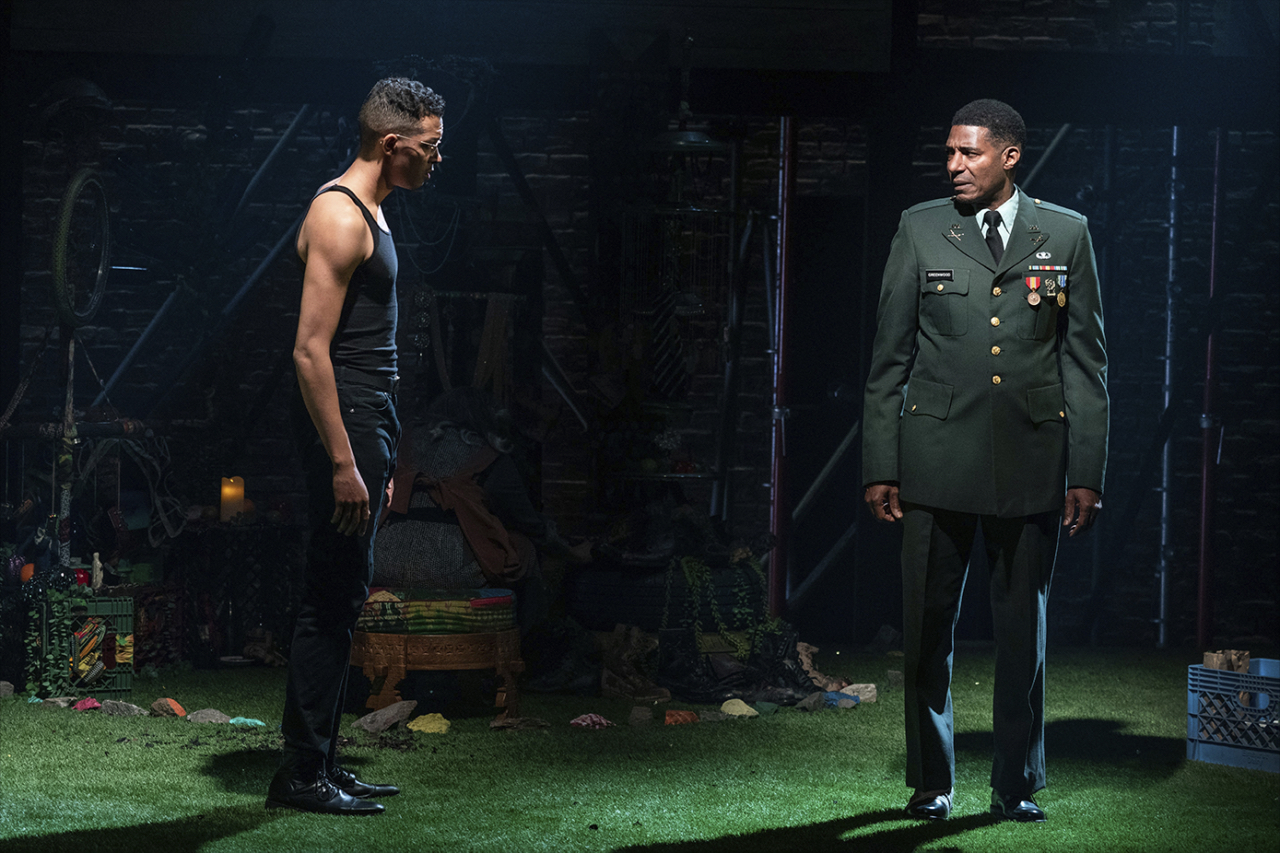ON SUGARLAND
by Aleshea Harris
Directed by Whitney White
New York Theatre Workshop
Reviewed by David Spencer
I try to veer from hyperbole, so do understand my sincerity when I say that On Sugarland, by Aleshea Harris, currently at the New York Theatre Workshop, is a great, and I hope soon-to-become major, new American play. It’s my first exposure to the work of Ms. Harris, so I also want to veer from a generalization that might not hold, but if we use the plays Balm in Gilead and The Hot L Baltimore as genre benchmarks—because On Sugarland similarly presents a community panorama—she may well be the logical successor to Lanford Wilson, in her delivery of poetic realism, spiced with just a soupçon of magic realism. As we’ve not seen examples of these in a while, and some of the younger readers may not know the terms…they mean exactly what they sound like. They’re schools of writing which encourage performances (and direction of performances) to emulate slice-of-life verité…but whose language and atmosphere are nonetheless heightened. Done right, it casts the proverbial haunting spell. And as directed by Whitney White, it’s done right.
This is no mean feat, for as expressive as the text—and yes, I requested a copy of the script—is written with a minimum of stage direction (common these days, but too often taken to mad minimalist extremes eliminating the context of basic action, or character age, leaving everything to be communicated via dialogue; and Ms. Harris seems to favor that); but also with what its author calls “adventures in typography”; which would seem to be the use of font size, line breaks, spaces of all kinds (between letters or lines), poetic stanza and page placement to create an internal connection of tone and intention within the actor, while eschewing any protocols of traditional playscript formatting that might influence line readings from without.
Its African-American community is a full-de-sac in an unnamed southern town in an unspecified time (identifiable as contemporary by dint of issues and behavior, but without reference to technology to peg it further), surrounded by three mobile homes. In one lives Sadie (KiKi Layne) who has many things to say, but only to us; in the wake of her Army veteran mother’s death; who lives there with er aunt, the vivacious and provocative Odella (Adeola Role). In the second live two female senior citizens, the rowdy Evelyn (Stephanie Berry) who accepts her age, but not the ravages that come with it; and the more tempered Tisha (Lizann Mitchell). In the third reside what I’ll call the “triggermost” characters: battle-wounded veteran Saul (Billy Eugene Jones), with an injured foot to tell the tale, even though the tale keeps changing; and his worshipping but temperamentally, perhaps mentally, unstable son Addis (Caleb Eberhardt), who dreams of being a warrior hero like his Dad.
It’s a community that has suffered way too much loss of life from whatever war is current, and seeks to achieve catharsis and healing through the ritual of “hollerin’”, memorial tributes that build and build into a chorus of primal screaming from the deepest places of sadness and rage. But of course, as with any community whose characters are this specific and this eccentric, heartbreak alternates with humor (often humor in the middle of heartbreak).
There’s not as much in the way of forward-moving story as in stories that have already happened slowly transforming from received romanization to revealed truth…but that, along with the developing interrelationships, is—in the able hands of Harris, White and the cast—is plenty enough to fill the play’s very rich, very panoramic two-and-a-half-hours (including intermission) without a minute feeling wasted.
